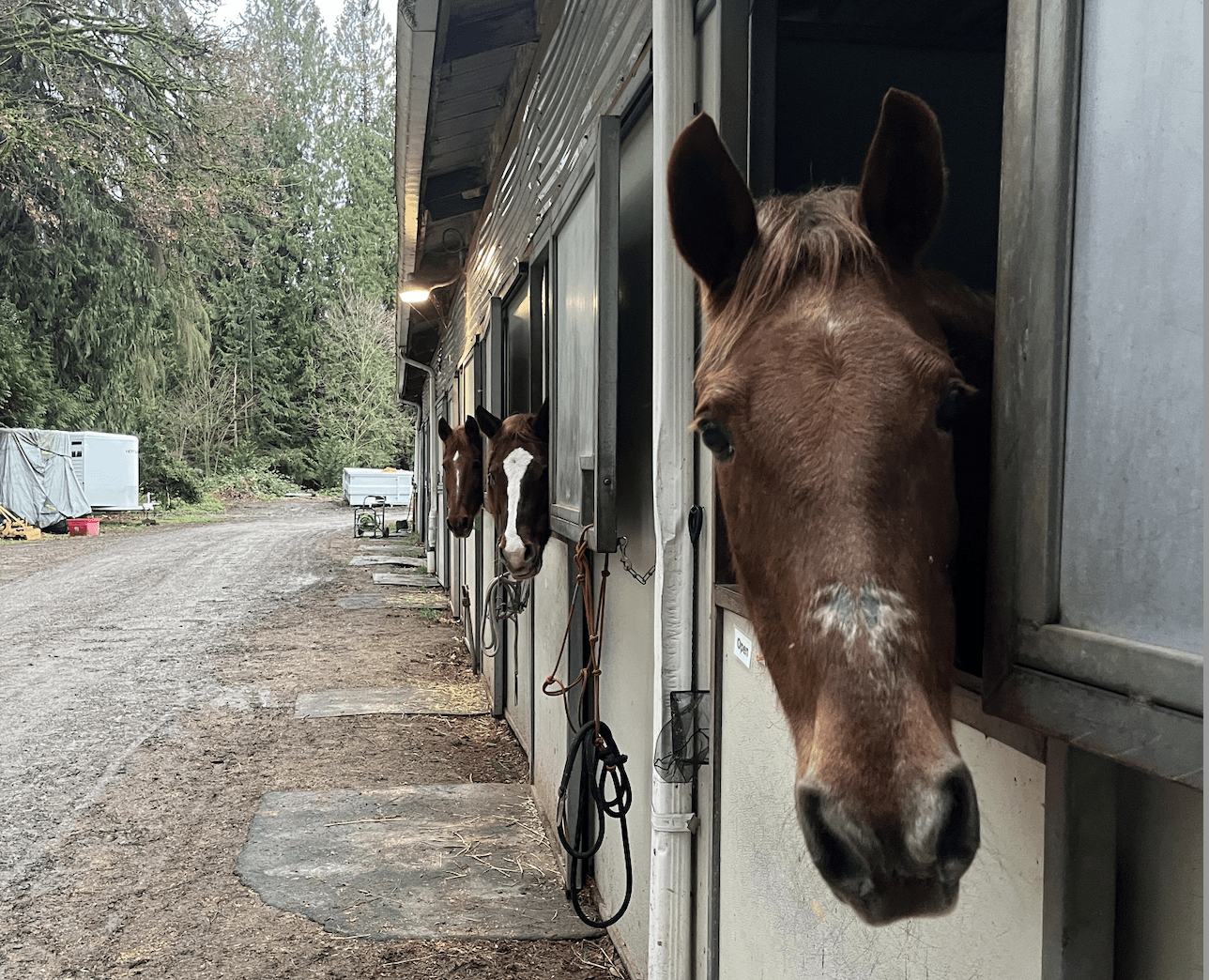Zuri has had us all concerned over the past few weeks. Several times, staff received calls during night checks reporting that Zuri was down and not getting up for her evening mash. Each time, Bonnie came down to check on her, and fortunately, it was determined that she wasn’t colicking. While we know Zuri is an older mare, we wanted to ensure there were no other underlying issues contributing to her behavior. With the help of our veterinarians, we developed a comprehensive plan to address her needs and keep her comfortable.
Adjustments to Her Nighttime Routine
To ensure Zuri’s comfort and safety, we’ve implemented several changes. She is now brought into a deeply bedded stall at night. This provides her with a soft and supportive surface for lying down, helping prevent sores and giving her solid, even ground to push herself up from. We also chose a stall with dual access doors, making it easier to assist her if needed, especially if she were to get cast against one of the walls.
We mounted one of our mobile cameras in her stall, enabling staff to monitor her throughout the night. Additionally, we’ve been taking her vitals daily to establish her baseline, as each horse has slightly different normal ranges. Knowing these helps us track any changes in her health more accurately.
Pain Management and Medication Adjustments
Zuri has been on Equioxx since she arrived at SAFE this summer. Recently, under veterinary guidance, we adjusted her pain management regimen. We added Tylenol to her treatment and switched from Equioxx to Bute for a one-week trial. While we’re about four days into this adjustment and haven’t seen significant changes yet, we’ll revert to Equioxx if there’s no improvement.
Her nighttime behavior varies: some nights she’s down for up to three hours, sometimes lying multiple times, while on others, she’s down just once for about an hour. She alternates between sternal recumbency (on her belly with her legs tucked underneath) and lateral recumbency (on her side). As long as she remains comfortable, we allow her to rest. However, if she lies laterally for more than two hours, we start monitoring for potential concerns about her internal organs. Fortunately, she frequently changes positions, so no issues have arisen so far.
Observing and Understanding Her Behavior
The camera in her stall has provided valuable insights into Zuri’s behavior. She enjoys looking out her window, and when it’s closed, she’ll paw at it and show some agitation. For the most part, though, she’s relaxed in her stall. However, she has little patience in the morning! When staff arrives, she’s quick to demand attention, calling out, tossing her head, and pacing until she’s taken out to her paddock. She’s quite the diva and knows she’s a big deal around here.
One curious behavior we’ve noticed is her hesitation before getting up. It doesn’t seem like she’s struggling, but she often appears to be deliberating for up to 30 minutes before finally rising. Occasionally, she’ll have a bowel movement while still lying down, which isn’t ideal, but the good news is that when she decides to get up, she does so without any difficulty. On rare occasions, staff has had to intervene—once, on her first night in the stall, she got too close to the wall. Before she became cast, we rolled her over, and she got up easily. Since then, she’s chosen to lie down near the center of the stall, ensuring plenty of room to get up on her own. She is one smart cookie!


